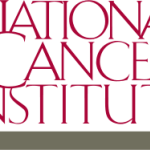- Industria: Government; Health care
- Number of terms: 6957
- Number of blossaries: 0
- Company Profile:
The National Cancer Institute (NCI) is part of the National Institutes of Health (NIH), which is one of 11 agencies that compose the Department of Health and Human Services (HHS). The NCI, established under the National Cancer Institute Act of 1937, is the Federal Government's principal agency for ...
A humanized monoclonal antibody directed against the tumor necrosis factor-like weak inducer of apoptosis receptor (TWEAKR) with potential antineoplastic, immunomodulating and antiangiogenic activities. Enavatuzumab binds to TWEAKR and inhibits TWEAK ligand binding and activation of NF-kappaB-mediated cytokine release, which may result in tumor cell apoptosis. TWEAKR is a cell-surface receptor with homology to tumor necrosis factor receptors. Upon binding with its ligand, TWEAKR has been shown to stimulate cytokine release and cell proliferation, migration, and survival; it may also promote apoptosis under some conditions. This receptor may be overexpressed in a variety of tumors including those of the pancreas, colon, lung, kidney, and breast.
Industry:Pharmaceutical
A humanized monoclonal antibody directed against the pro-inflammatory cytokine interleukin-6 (Il-6) with potential immunomodulating activity. Upon administration, anti-interleukin 6 monoclonal antibody ALD518 binds to and blocks the activity of IL-6, which may mitigate the catabolic effects of IL-6.
Industry:Pharmaceutical
A humanized monoclonal antibody directed against the platelet-derived growth factor receptor (PDGFR) alpha with potential antineoplastic activity. Anti-PDGFR alpha monoclonal antibody MEDI-575 inhibits activation of the cell-surface tyrosine kinase PDGFR alpha subunit and subsequent triggering of mitogenic signaling pathways, including the JAK/STAT, PI3K/Akt, and MAP kinase pathways. PDGFR alpha acts as a mitogenic signaling receptor for cells of mesenchymal origin and inhibition of receptor activity may inhibit tumor cell proliferation.
Industry:Pharmaceutical
A humanized monoclonal antibody directed against the pancreatic cancer antigen MUC1 with potential antineoplastic activity. Monoclonal antibody HuPAM4 (mAb HuPAM4) binds to cells expressing MUC1 antigen; mAb HuPAM4 may be useful as a carrier for radioisotopes and other antineoplastic therapeutic agents.
Industry:Pharmaceutical
A humanized monoclonal antibody directed against the N-terminal epitope of Notch ligand DLL4 (delta-like 4) with potential antineoplastic activity. Anti-DLL4 monoclonal antibody OMP-21M18 binds to the membrane-binding portion of DLL4 and prevents its interaction with Notch-1 and Notch-4 receptors, thereby inhibiting Notch-mediated signaling and gene transcription, which may impede tumor angiogenesis. Activation of Notch receptors by DLL4 stimulates proteolytic cleavage of the Notch intracellular domain (NICD); after cleavage, NICD is translocated into the nucleus and mediates the transcriptional regulation of a variety of genes involved in vascular development. The expression of DLL4 is highly restricted to the vascular endothelium.
Industry:Pharmaceutical
A humanized monoclonal antibody directed against the Lewis Y antigen, a tumor-associated epithelial antigen, with potential antineoplastic activity. Following binding, monoclonal antibody Hu3S193 triggers an antibody-dependent cell-mediated cytotoxicity in cells expressing Lewis Y antigen.
Industry:Pharmaceutical
A humanized monoclonal antibody directed against the human insulin-like growth factor-1 receptor (IGF-1R/CD221) with potential antineoplastic activity. Anti-IGF-1R monoclonal antibody AVE1642 specifically binds to and blocks membrane-bound IGF-1R, preventing the binding of the natural ligand IGF-1 and the subsequent activation of PI3K/AKT signal transduction, which may result in the induction of apoptosis and a decrease in cellular proliferation. Activation of IGF-1R , a receptor tyrosine kinase of the insulin receptor superfamily overexpressed by various cancer cell types, stimulates cell proliferation, promotes angiogenesis, enables oncogenic transformation, and suppresses apoptosis.
Industry:Pharmaceutical
A humanized monoclonal antibody directed against the human immunosuppressive molecule CD200 (OX-2) with potential immunomodulating and antineoplastic activities. Anti-CD200 monoclonal antibody ALXN6000 binds to CD200, blocking the binding of CD200 to its receptor, CD200R, present on cells of the macrophage lineage; inhibition of CD200 may augment the cytotoxic T-lymphocyte (CTL) mediated immune response against CD200-expressing tumor cells. CD200 is a type 1a transmembrane protein, related to the B7 family of co-stimulatory receptors, and is upregulated on the surface of multiple hematologic malignant cells; this transmembrane protein appears to be involved in the downregulation of a Th1 (helper T cell) immune response.
Industry:Pharmaceutical
A humanized monoclonal antibody directed against the human CS1 (CD2 subset 1, CRACC, SLAMF7) antigen with potential antineoplastic activity. Elotuzumab binds to the CS1 antigen, which may trigger antibody-dependent cellular cytotoxicity (ADCC) in cells expressing CS1. CS1 is a cell surface glycoprotein belonging to the CD2 subset of the immunoglobulin superfamily (IgSF) and is highly expressed by multiple myeloma cells, but minimally expressed by normal cells.
Industry:Pharmaceutical
A humanized monoclonal antibody directed against the human chemokine receptor 2 (CCR2), with potential antiangiogenic, immunomodulating, antimetastatic, and antineoplastic activities. Anti-CCR2 human monoclonal antibody MLN1202 binds to CCR2 and prevents binding of the endothelium-derived CLL2 (monocyte chemoattractant protein-1 or MCP1) to its receptor CCR2, which may result in inhibition of CCR2 activation and so inhibition of angiogenesis, tumor cell migration, and tumor cell proliferation. In addition, this agent may reduce levels of C-reactive protein (CRP). The G-protein coupled receptor CCR2 is expressed on the surface of monocytes and macrophages, stimulates the migration and infiltration of these cell types, and plays an important role in inflammation, angiogenesis, and tumor cell migration and proliferation.
Industry:Pharmaceutical
